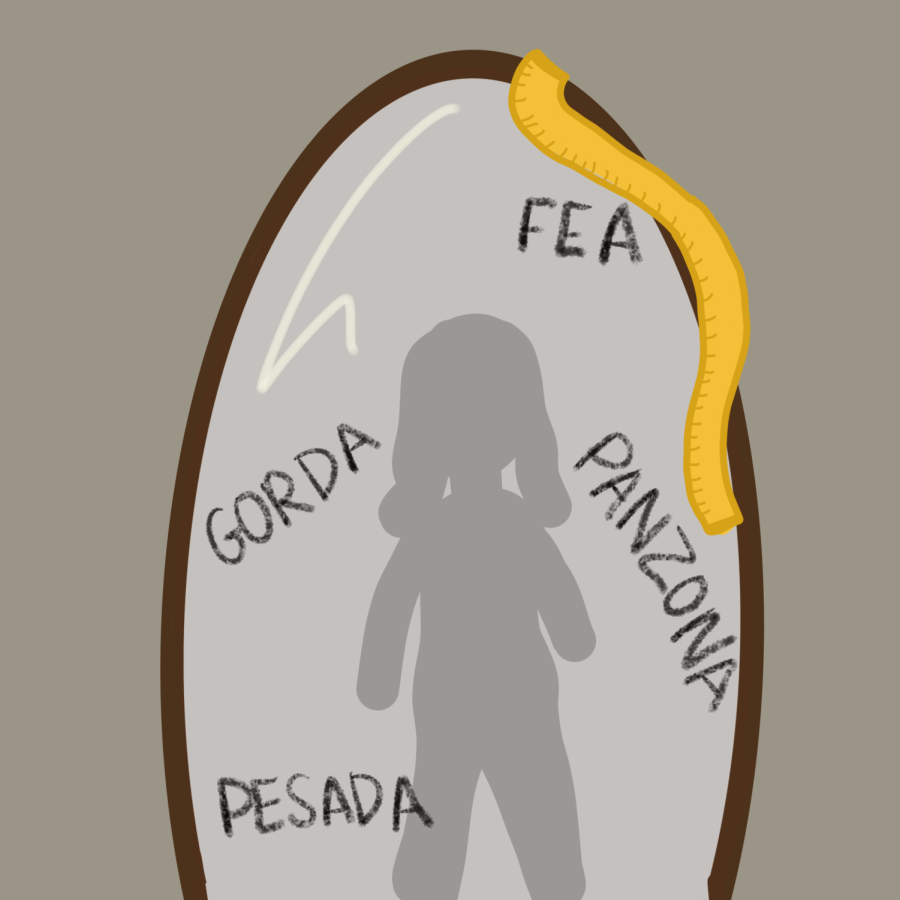It is not a diet, it is a problem
October 11, 2022
What is culture? According to the Oxford Learner’s Dictionary, it is “the customs, arts, social institutions, and achievements,” of a particular nation, people or social group. During the months of September and October, the United States celebrates National Hispanic Heritage Month to show support for the impact and contributions that Hispanic communities have made to this country. While it is important to appreciate the great food, arts, music and familia, the Hispanic community should take a step back and critically think of the impact their culinary culture has on their mental health.
In the Hispanic community, eating disorders are often neglected as a health issue and, instead, are treated like tantrums. They are swept under the rug mostly to avoid the spread of word that someone in the family is ill, or worse, “crazy.” There is an enormous amount of importance placed on what others will think or say rather than helping people to solve their issues, but there is also the firm, antiquated mentality of “We don’t talk about that nonsense.” Hispanic people are taught from a young age that problems are not meant to be shared. Instead, one should silently deal with them on their own in an effort to not be a burden to others. This results in private issues evolving into generational trauma and being normalized amongst the community.
Restrictive eating disorders like anorexia and bulimia can start from a young age when girls are complimented for their small size and thinness, causing them to internalize that validation and restrict their eating habits so they can maintain their physique. But it is also often contradicted by their families when told that they should eat more because they are “too thin” and that nobody is going to love them. Sadly, there is an underlying cultural obsession that women should be thin and small, so they can attract a prospective husband and get married. That underlying obsession has become normalized, and in some cases encouraged, leading young women to develop an unhealthy relationship with food.
The unhealthy relationship that is created by commentary is overall an all-over-the-place contradiction that has no beginning and no end. Moms and tias are constantly judging, criticizing and scrutinizing their daughters’ and nieces’ bodies. Constant comments like “eat a little less or you’ll get fat,” “are you sure you want to eat that,” or “have you gained weight,” create food insecurity that affects self-esteem, eating habits and mental health.
While many people will dismiss the harmful comments stating that “it is our culture,” it does not make it okay. Once again, it creates unresolved problems that will be passed down through the generations due to a stubborn and dangerous mentality. The Hispanic community should and has been aiming to create and hold a conversation regarding these issues to create a solution in order to break that cultural aspect.










